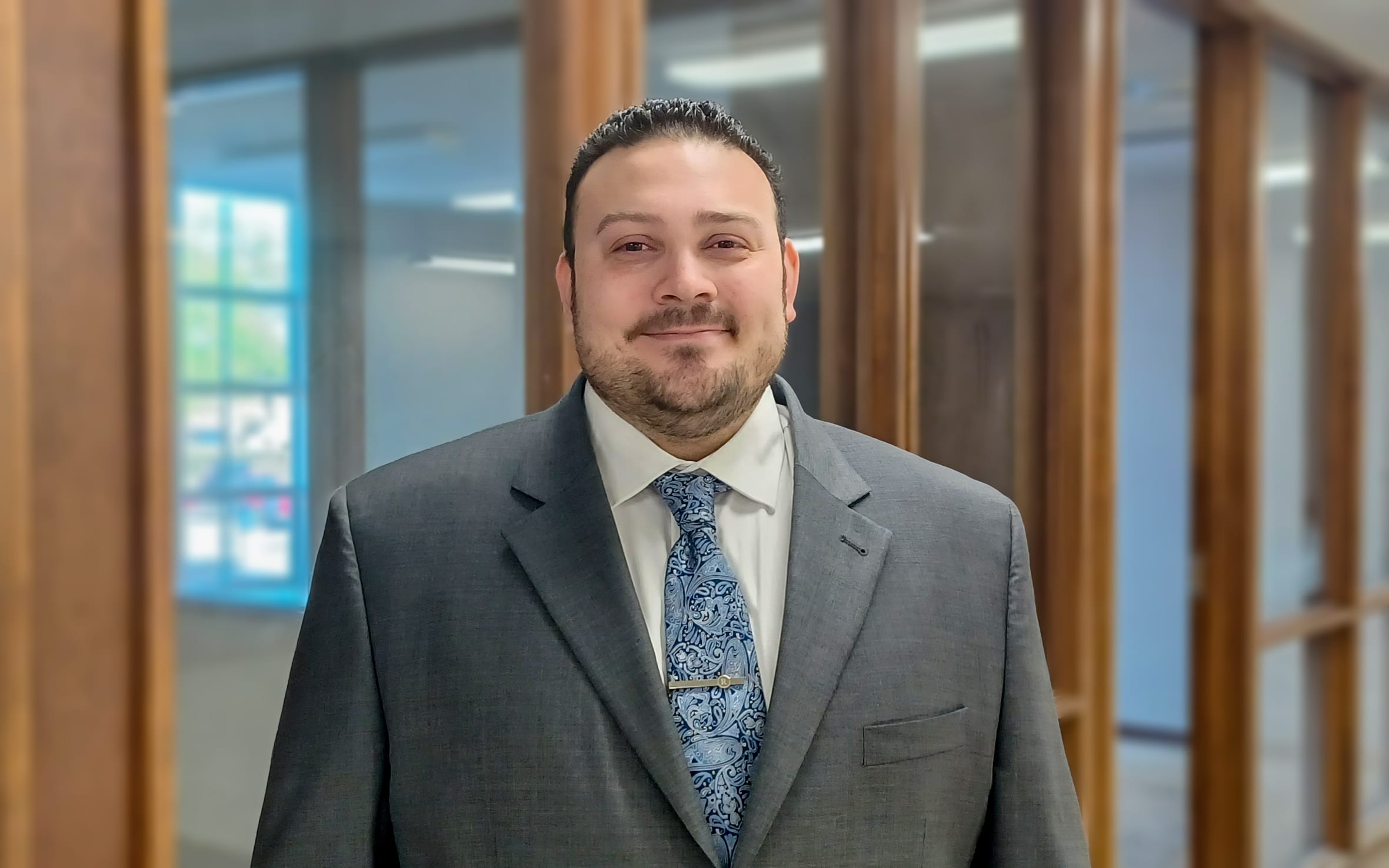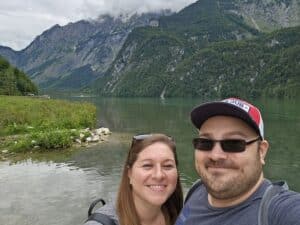
Miguel Rivera
Electrical Engineer
Math and science fascinated Miguel Rivera so much as a child that he envisioned two career paths: engineer or doctor.
He grew up outside Philadelphia, and high school summer camps at Carnegie Mellon University in Pittsburgh inspired him to study electrical engineering at Rensselaer Polytechnic Institute in New York.
After a dozen years of electrical design projects in areas as varied as health care, higher education, industrial and veterans’ affairs projects, he landed in the Freese and Nichols’ Facilities group in 2019 to work on microgrid and renewable power. He’s made key contributions to projects for the Texas Military Department, and now his passion for energy resilience has led him into graduate-level research and professional presentations on his specialty.
With a 2021 master’s degree from the University of North Texas, he’s now pursuing a doctorate, focusing his research on power electronics, microgrids and energy resiliency.
“Given the advancements in AI and the increasing power demands of growing cities, I’m working to support and improve our aging infrastructure,” he said.
An active member of UNT’s Institute of Electrical and Electronics Engineers chapter, Miguel has presented at IEEE’s Transportation Electrification Conference (ITEC) on power converter control strategies for utilizing electric vehicles to support power grids. He also mentors students through resume reviews and workshops to give them the kind of support he said he wishes he had as a young engineering student.
What attracted you to Freese and Nichols?
I really liked their focus on continuous improvement. I’m big on that as well, with going back to school and trying to get my PhD. That was definitely a big thing.
What opportunities have you had for continuous learning?
I have been an active participant in the lunch-and-learns and the company’s TEP (Technical Excellence Program) sessions to stay current on developing technologies and alternate design approaches. The TEP has a big focus on developing presentation skills along with technical know-how. It’s important to have opportunities to share experiences and lessons learned with the rest of the group since we all have different experiences. It also provides a forum for developing presentation skills and allows us to showcase what you’ve learned.

Tell us about your work. What kinds of projects do you typically work on?
I’m an electrical engineer, and I’ve worked primarily on facilities and microgrid projects while at Freese.
I also had the opportunity to work on a fiber project for the Bois d’Arc Lake program, a dorm renovation for the U.S. Army Corps of Engineers at Laughlin Air Force Base and on a pump station. It has been exciting to work on new project types and learn new skills.
Please describe your favorite projects so far.
One of the main reasons I came back to Freese and Nichols was the Camp Swift and Camp Mabry microgrid projects. That work touches on so many different systems and has helped me develop new skills and abilities.
The goal of the Camp Mabry project was to allow the campus to remain in operation when the electrical service is down. As a result of the project, Camp Mabry will be able to operate 20 buildings for 14 days despite an outage.
What have you learned about yourself from challenging experiences in your career?
I think it’s kind of twofold: the importance of communication and the need to continue improving. One of the things that we always need to develop is communication, and that has been an important element critical for these microgrid projects because we’re doing something new and different, requiring out-of-the-box thinking. There’s been a lot of collaboration both internally and externally with many people involved.
There’s also the technical aspect of it, with new technologies and new ways of doing things, and it’s challenging, and that’s the part that I like is to challenge myself and grow and learn.
I think some of Freese and Nichols’ LEADS values, like engaging as family, have definitely helped me overcome those difficult times and allowed me to be a little bit more open. I was kind of doing things on my own, but I’ve found there are a lot more resources and a lot more people to be able to hear different opinions and receive words of encouragement.
What does “Engage as Family” mean to you in your role at Freese and Nichols?
l had just moved to the area four to five months before the pandemic, and this was my first time moving this far away from my family. I definitely felt there was a large number of people within our group that were always friendly, willing to talk, and they made the transition easier for me, for sure.
Even when I left for my master’s degree, I would get phone calls from a couple of my coworkers.
It felt like they took an interest in me.
At one point, I talked to my now-supervisor, and he came out to UNT to speak with the engineering students.
Our schedules are hectic. I think he definitely went above and beyond. I appreciate that, and I know the kids did, too.
What would be your advice to young professionals looking to get into the industry?
I think the biggest thing that has benefited me is offering to help others and asking questions.
We feel like we went through engineering school and we need to know it all.
You never do, and asking questions and volunteering to help others just shows that you care about what you’re doing and also opens up different opportunities.
What has been the most rewarding thing about your job?
The school motto for my undergrad was, “Why not change the world?” I thought it was so fitting. I think a lot of us go into this to make a difference.
That’s been the most rewarding thing for me. Not everybody thinks the same way that we do and has the skill set that we’re able to share.
What is something that people would be surprised to know about you?
I don’t really talk too much about the international travel that I’ve done. At one point, I was fortunate enough to go and live with my grandparents in Nicaragua for six months.
I’ve been able to go to Japan to visit a friend who was studying out there, and I went to a friend’s wedding in Morocco and got to travel around Spain a bit. For our honeymoon, my wife and I went to Germany for a couple of weeks.
It’s awesome. You learn so much just about history. It’s more entertaining than reading a history book about the area.


